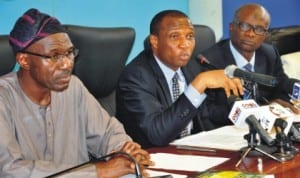Ecotales
Slum-Dwellers: Revolutions Are Not Built In A Day
The recent news from
Egypt is devastating but surely not that surprising. Despite the excitement arising from social mobilisation in 2011 and the hope and optimism that greeted the fall of President Mubarak and his allies, democracy has not been secured.
There have been elections, a new constitution, and a democratically elected president, but Egypt’s citizens have now seen these followed by a military takeover, rising violence, and increasing political contestation. Today they fear the return of an authoritarian state and must wait to see what happens next. And the situation elsewhere for the ‘Arab Spring’ is also not looking good.
Meanwhile democracy in Brazil continues to mature, but with evident flaws. In June and July a frustrated population took to the streets to complain about government priorities and the massive and likely corrupt investment in sports facilities for the 2014 World Cup, despite neglect of essential basic services including transport.
The Brazilian government responded with the promise of a massive investment, over US$20 billion, to improve transport facilities – and this may help to alleviate the most acute problems. But the underlying model of urban politics remains unquestioned – people protest, and the state responds with programmes designed and implemented by individuals and agencies that have persistently failed to address problems in the past.
As the Brazilian example shows, this is true even in a state in which there has been massive investment in participatory processes and where a radical government has committed to help the urban poor. Even in these circumstances, there is a demonstrated incapacity of government to address some of the more intractable social costs that modem forms of capitalist development bring.
In the global North, considerable advances have been made in establishing rights, affirming an inclusive citizenship and addressing disadvantage. These advances reflect decades of pressure that social movements have exerted as they fought for and secured the democratic franchise, welfare states and accountab Ie government.
But as the on-going economic crisis illustrates, social justice remains elusive. Rising inequalities, the withdrawal of essential safety nets and rapidly declining opportunities for young people across Europe all suggest that issues of poverty and social exclusion are very much on the political agenda in the 21 st century.
Meanwhile in the global South, more than 900 million people, close to one in seven in the world’s population, continue to live in appalling and life-threatening conditions of over-crowded shack neighbourhoods that lack even the most basic facilities. These people want justice, they want to be treated with respect, to live their lives with dignity and to secure their basic needs.
A new approach
While the attention of the media, social commentators and would-be revolutionaries have focused on the models of contentious politics that resulted in social transformation in nineteenth and twentieth century Europe and North America, new, quieter forms of urban transformation have also been in the making. They are led by some of the most disadvantaged people on our planet.
A new book, Reducing Urban Poverty in the Global South,reports on the approach that slum dwellers across Africa and Asia have used to achieve social justice and urban rights. This approach recognises the limitations of protest politics. It has emerged from those who have witnessed the struggles for independence in former colonial states. It also builds in the lessons of democratisation in countries such as Cambodia, the Philippines and South Africa. As such, it has at its heart scepticism towards efforts to contest power and gain control over the state.
While its leaders are sympathetic to the cause and are committed to the struggles for social justice and freedom, they doubt the effectiveness of such strategies. They recognise that, as difficult as it is to build a movement powerful enough to bring thousands onto the streets night after night to demand change, it is even harder to make progress stick.
Faced with government promises that are broken, public expenditures whose benefits are captured by the wealthy, and with revolutions that welcomes new elites who rapidly become inculcated into the behaviour of the old elite, they have refined an alternative practice. In Reducing Urban Poverty in the Global South we highlight five interventions, each of which follows a broadly similar approach. They invest in building up neighbourhood groups able to improve the lives of people in informal settlements – places where people lack secure tenure, running water, sanitation and waste collection. And these neighbourhood groups are led by women, doubly disadvantaged by gender as well as where they live.
Partnership not protest
These groups develop their own solutions to previously intractable problems of urban development. They design new sanitation systems, build houses and document their communities. For the most part, women playa leadership role, gaining a new confidence as they demonstrate how they can improve local conditions. They network these groups so that they influence city politics.
They come together in networks to challenge local politicians who first favour a ‘divide and nile’ strategy, and persuade these politicians to negotiate as they realise that communities across the city are now working together. As solutions emerge they work with their local authorities to make sure the government is on board and then they negotiate additional resources to scale up their efforts. To date, millions of people in the world’s poorest informal settlements have seen the benefits.
Other strategies have failed, in part because of the violence, political manipulation and neglect that are dominant in many urban centres. We show that while development professionals and in some cases politicians are well-meaning, they are not powerful enough to negotiate alternatives in these contexts, in which speculative profit-making creates and controls markets for every single basic need – determining that these are commodities that only go to those who can pay.
Decades of political campaigning and formal urban improvement programmes have brought them little. Reducing Poverty in the Global South shows how squatters and tenants -and the networks and federations they form- have defined their own strategies and solutions and can negotiate their own fates as1hey stnI~gle for equity and justice in th: towns and cities of the future.
Miltin is Research Fellow IIED
Diana Miltin
Ecotales
Sanitation Marshalls Warn Against Dumping Refuse In Gutters
The Coordinator of Rivers
State Sanitation Marshalls, Prince Sodin Akiaba has warned residents of Port Harcourt and it environs against dumping of refuse into drainages.
Speaking in an interview with The Tide in Port Harcourt, Prince Akiabo blamed uses of flooding in parts of Port Harcourt especially in the Mile III area of the indiscriminate dumping of refuse into the gutters.
He said that with the approach of the rainy season, there is need for caution on the part of the people against indiscriminate refuse disposal.
Prince Akiaba said that the situation could lead to massive flooding across the city thereby creating health problem for the people.
He said that there is need for neighbourhood vigilantees to check this situation.
“Every street in Port Harcourt should formed a vigilantee to monitor refuse disposal in their street.
“This is the only way to stop the indiscriminate dumping of refuse in the drains,” he said.
The coordinator said that the sanitation marshalls can help the government to check this trend, if approval is given to that effect by the government.
He used the occasion to commend the Rivers State Ministry of Environment and the Rivers State Environmental Sanitation Authority for the efforts in keeping the city clean, but noted that the two agencies need to work with stakeholders for effective result.
Ecotales
NOSDRA Seeks Oil Spill Response Base
The National Oil Spill De
tection and Response Agency (NOSDRA) has called on the military to establish an Oil Spill Response Base (OSRB) for quick intervention during oil spill emergencies.
Mr Peter Idabor, the Director General of the agency, made the call during a courtesy visit to Vice Admiral Usman Jibril, the Chief of Naval Staff, in Abuja.
Idabor said the base, if established, would serve as a veritable security for quick response and intervention by the agency during oil spill emergencies.
He recalled the Bonga oil spill incident and commended the Navy for providing a vessel to NOSDRA that ensured quick response.
According to him, crises usually occurred between affected communities and companies involved during oil spill emergencies.
He said partnership with the Navy had become critical due to its role in providing security to the maritime environment.
“It has become more critical for us to partner with the Nigerian Navy, especially when it has to do with issues relating to oil spill in this country.
“When there is a large oil spill, there is usually conflict between the community and the company involved.
“In most cases, it is sabotage and in such cases, we require the military to come in at certain point.’’
He said that most of the deaths in the Niger Delta had positive correlations with oil spillage.
He explained that people were at the risk of being affected by eating food that come from such polluted environment.
He also said the life span of most Nigerians was shortening due to the effect oil spill on the ecosystem.
“The attitudes of our oil explorers, especially when spills occur, it does not bother them that over a million of chemicals are spilled into the sea, which is very dangerous to health.
“The oil spill contaminate our aquatic resources and it affects the entire food chain as long as we survive on the food chain.’’
Responding, Jibril said the Navy was familiar with the operation of the agency, adding that it would support NOSDRA to stop oil spill in the country.
He said the force was also aware of the effects of oil spill to aquatic life and the environment.
The Navy Chief also commended the agency’s cooperation with the military, saying “you have reduced spillage and its attendant effects in the country within this few days.
“We are ready to contribute to stop oil spillage and we are ready to give to you information about spillage whenever they occur.
“Our new boats that we are importing from China have facilities to contain oil spillage.’’
He however, said the delay in the release of boats to the agency was to control their misuse and advised the agency’s management to henceforth, put in its administrative request at their time of need.
He gave an assurance that the Navy would reduce administrative bottlenecks to enable the agency to access the facility during emergencies.
Jibril, however, sought the support of NOSDRA in the provision of infrastructure to the force, saying, “we need to support one another to achieve our goals.
“We have the human capital base to do what we are trained to do; what we need more is the infrastructure and we call on other organisations to support us too.’’
Ecotales
N300m Debt Worries C’River Water Board
Mr James Buchan, the
General Manager (Operations) of Cross River State Water Board, said more than N300 million owed it by various consumers in the state posed a challenge to its operations.
Buchan said this in an interview with the newsmen in Calabar last week, saying that the board was worried about the debt.
He said the board spent an average of N25 million monthly on diesel and chemicals to sustain water supply, urging the consumers who owed to settle their bills.
The general manager said that the state government paid its water bills regularly, urging the consumer’s to emulate the government by paying their bills to avoid disconnection.
Buchan further advised the consumers to always make genuine complaints about the services of the board to guarantee uninterrupted clean water supply.
The manager also urged consumers to shun illegal connection and to report to the board, those, including its staff members, who engaged in fraudulent activities.
“We want to supply to the public well treated water, we want to provide 24 hours service to the people, but we can only do this with the help of the people,’’ he said.
Buchan promised that Geographic Information System had been put in place to streamline the operations of the board and improve services.
He said the board was also worried over the damage of its pipelines worth more than N300 million by road construction companies in the state.
Buchan said the board had, however, drawn the attention of the officials of the concerned construction companies to the development.
-
News5 days ago
JAMB Releases 2025 UTME Results, Withholds 39, 834 Others
-

 News5 days ago
News5 days agoSuspended Commissioner Denies Disruption Of Empowerment Programme
-

 Niger Delta5 days ago
Niger Delta5 days agoOyetola Distributes Life Jackets To Water Transportation Users In Bayelsa
-

 Politics5 days ago
Politics5 days agoNo Greater Political Sin Than Defecting With Another Party’s Mandate – Kwankwaso
-

 Sports5 days ago
Sports5 days agoOmo-Agege sues Minimah, NOC Over NBF Crisis
-
Oil & Energy5 days ago
Reps Launches Probe Into N200bn CBN Loan To DISCOs
-

 News5 days ago
News5 days agoFG Rescues 78 Trafficked Victims In Cote D’Ivoire
-

 News5 days ago
News5 days agoHausa Community Debunks Saidu’s Appointment Report


